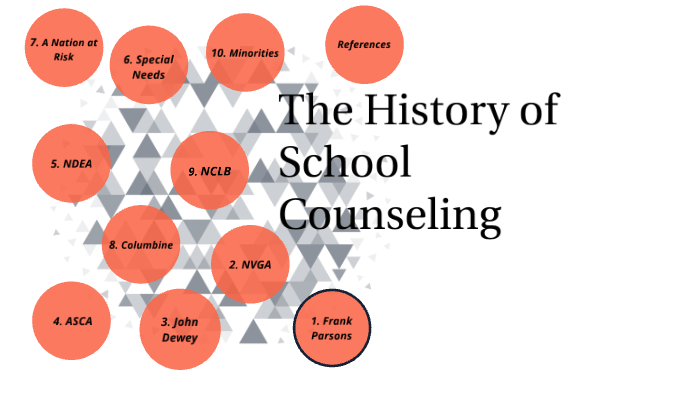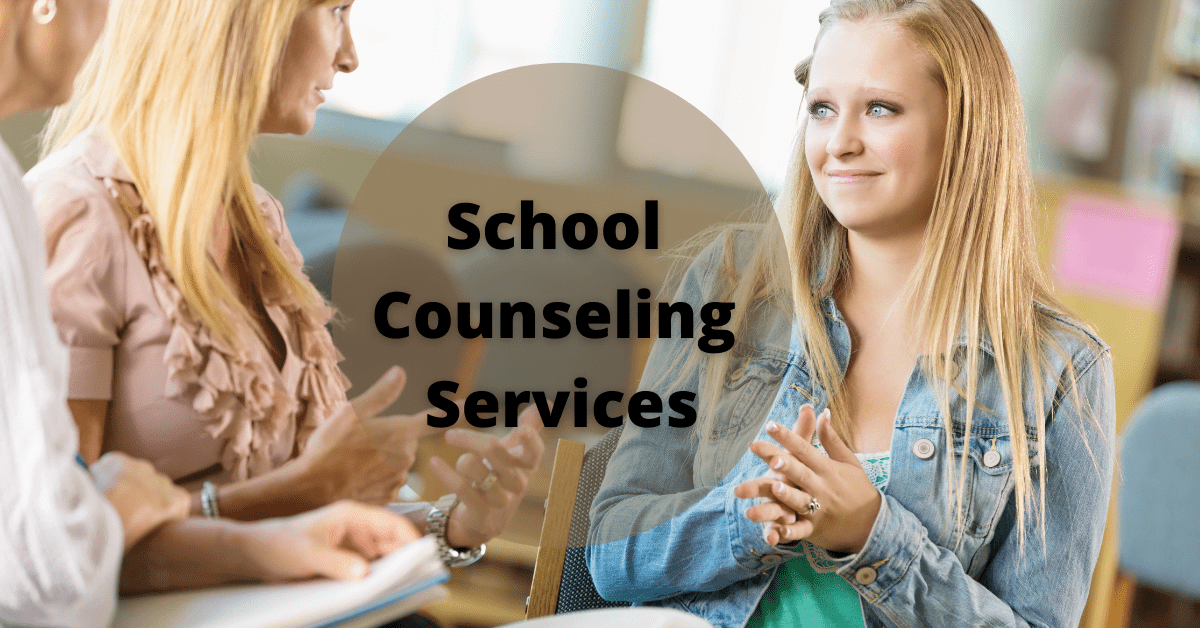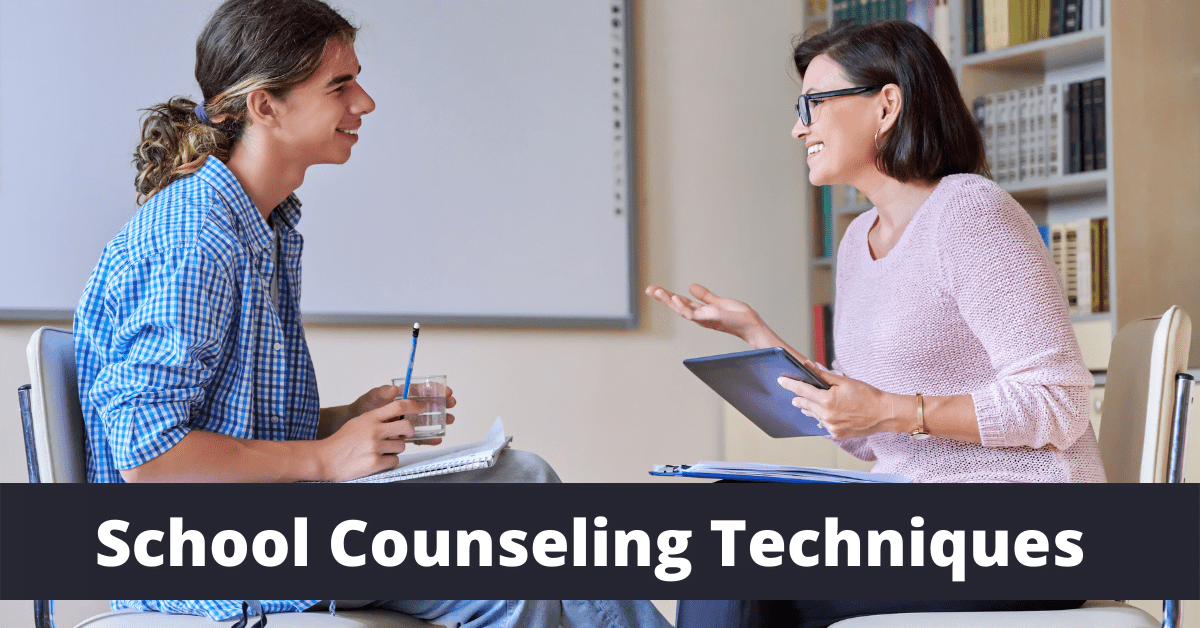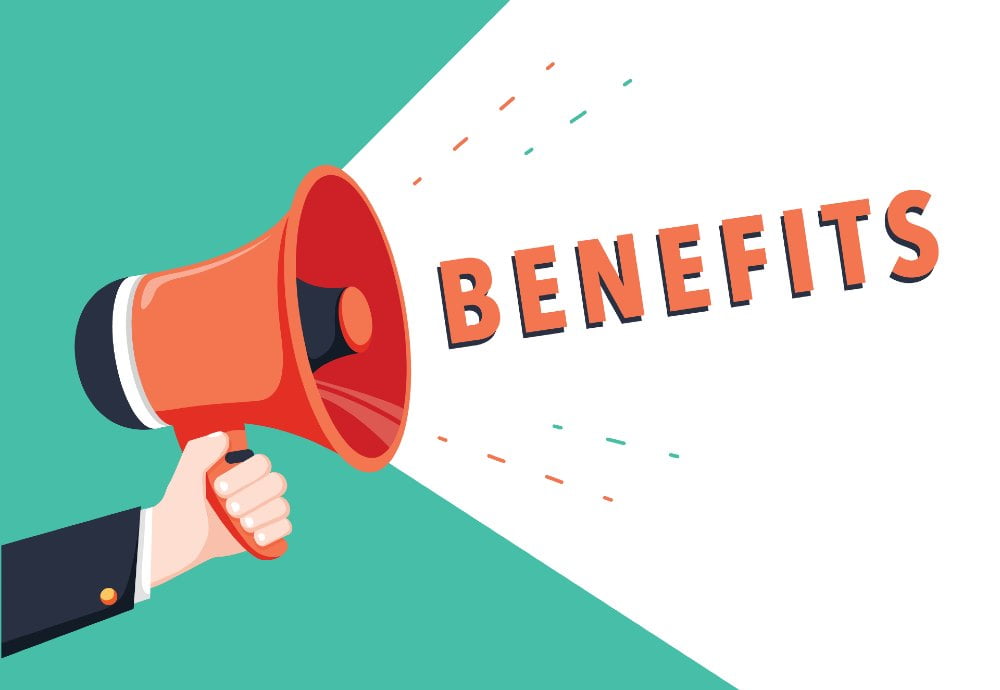Contents
What Is School Counseling?
 School Counseling is a profession that has been around for a long time. The counselors work to promote the mental, social and emotional development of students. This is by providing services such as academic guidance, personal development opportunities, and organizational skills.
School Counseling is a profession that has been around for a long time. The counselors work to promote the mental, social and emotional development of students. This is by providing services such as academic guidance, personal development opportunities, and organizational skills.
School Counseling is a profession that provides support to children, adolescents, and their families. Counselors work with students individually or in small groups. They also provide guidance on school policies and classroom management. In school counseling, there are many roles that can be played. These often depend on the grade level of students.
For example, elementary school counselors may need to assist students in making friends or focus on building character skills. While secondary school counselors might facilitate discussion groups for their classes. These are related to college planning and career development.
History of School Counseling

Counselors have been working with students in the classroom since as early as 1890. During these times, counselors were responsible for providing vocational guidance. They were also helping students through their college applications process as well as selecting courses that would best benefit them once they began attending university.
After that, school counseling was not widely recognized as a profession. This was until the 1950s and 60s. During this time, counselors began to focus more on students’ mental health and well-being. This was rather than their academic success or career readiness. They were also responsible for helping to develop school policies. These policies will benefit all students in an effort to promote equal opportunities for everyone.
In the 2000s, school counselors began to appear in schools all throughout the world. This was not only in public schools but also in private and charter schools. The different roles were once exclusive to secondary school counselors, elementary-level teachers took them as well.
Types of School Counseling Services

There are two types of counseling services that school counselors provide in the classroom. These include direct and indirect.
Direct Services
Direct Services involve working with individual students to meet their needs. These often take place outside of the regular class time by the meeting. It was either before or after school hours or during lunchtime periods. Some examples are conducting therapy sessions for children. These children were struggling emotionally. Counselors organize workshops on social skills development for elementary/secondary students, etc.
Indirect Services
Indirect Service refers to providing information. It is about mental health issues through lectures at assemblies and special events held at schools. These also include leading meetings between parents and teachers. These meetings were necessary about student behavior concerns. These were might have related to academics or personal/social life problems.
School Counseling Techniques

There are many different techniques that school counselors use. This is when they are trying to help students in their classes. Some of these are:
- Positive reinforcement
- Reinforcing positive behavior that they observe in their students
- Truancy prevention programs
- Identifying at-risk youth and providing counseling services. This is to help them succeed academically, emotionally, and socially.
These professionals might also be called upon by teachers or parents of the children they work with to assist them in resolving any academic, social, or behavioral problems that may arise between themselves and their children. For example, one technique is psycho-educational group interventions which usually involve several sessions (between two and five). This is where individuals meet with a counselor for support. This is while working towards overcoming personal struggles. These struggles are such stress management issues related to family life at home. This particular approach can benefit both groups of people involved. This is because it allows individual participants within each session time together. It is because everyone has unique circumstances surrounding what caused them to feel stressed about certain things (i.e., work, family, etc.).
School Counseling Goals
Counselors are able to help students in their classes by setting goals that they want them to achieve while working together. Some of them are:
- To help students feel safe when they are in school
- Helping students become more confident in their academic abilities. It is while also teaching them how to set goals for themselves by having discussions about different interests that they might have. This will allow children to begin exploring possible career paths.
- School counselors can create opportunities where students can start thinking about what kinds of careers they would like to pursue after finishing secondary education (e.g., college). It’s important for schools and teachers who work with younger grades (i.e., K-12). This is because high schoolers may already know the path that they want to take. This is regardless of whether it’s college or a trade program depending on their skill sets.
School Counseling Education
If you want a job as a counselor inside your local public school system or private daycare center, then it is important to earn an education degree. This is with at least one specialization in counseling psychology. While earning this degree, you will be sure to take courses such as child growth and development, group dynamics, psychological testing, theories of personality, multicultural awareness, and life span development, among many others.
Who Is School Counselor?
 A school counselor is a person who is responsible for providing guidance and support to students in order to enhance their social, emotional, academic development. They are able to do this by working with students individually or in small groups as well as facilitating discussion groups for their classes related to college planning and career development.
A school counselor is a person who is responsible for providing guidance and support to students in order to enhance their social, emotional, academic development. They are able to do this by working with students individually or in small groups as well as facilitating discussion groups for their classes related to college planning and career development.
Who Can Be A School Counselor?
Counselors can be anyone including parents, teachers, principals, etc. because counselors have the ability to help children learn how to grow into successful adults through exploring topics such as making friends or building character skills while secondary school counselors facilitate discussions about college planning and career advancement among many other things. Most schools require at least a master’s degree in counseling psychology which you will earn when graduating from an accredited university program that specializes in mental health.
Where Can School Counselors Work?
Counselors can work in many different settings such as public schools, private daycare centers, and non-profits organizations for young children between the ages of 0-11/12 years old with disabilities or developmental delays. They are often employed by both state government agencies and local school boards within the elementary, middle, high schools to help students develop personally, socially, and academically while receiving guidance on how they should behave in certain circumstances when necessary throughout their academic career according to age group (e.g., early childhood education).
Role of School Counselors
 There are several different types of jobs available within this field. For example, a school counselor could be employed with the public or private school system.
There are several different types of jobs available within this field. For example, a school counselor could be employed with the public or private school system.
In most cases, counselors teach classes and work directly with students in an educational environment. It is while also providing counseling services to meet individual student needs. In larger schools, they might even have their own office. This is where they can hold meetings with parents/teachers when necessary. They can also conduct therapy sessions for children who are struggling emotionally. Additionally, some of these professionals may provide leadership skills training workshops on academic success for teachers as well as help organize special events such as college fairs and career days in order to encourage different activities that promote social development among students in secondary grades.
Benefits of School Counseling

These are some of the benefits of school counseling:
- Offers support to both teachers and parents who work with the same children
- Creates an open dialogue between all parties involved surrounding any issues that may arise at home or within a student’s academic career.
- Helps students set personal goals that they want to achieve
- Gives children the tools necessary in order for them to become successful adults by teaching them how to manage their emotions and behaviors.
- Helps parents understand their children better by discussing the issues that they are struggling with at school or home.
- Gives children the opportunity to explore different career paths that they might want to pursue in the future.
- Helps children in school by encouraging them to participate and set goals that they want to achieve.
- Improves children’s academic performance because it focuses on their social, emotional, and behavioral needs.
- Encourages students to become more involved in extracurricular activities at school (e.g., sports) which will allow them the chance of making new friends while also focusing on personal growth through teamwork with others who enjoy doing similar things as themselves.
Side-Effects of School Counseling
These are some of the side-effects of counseling at school:
- Sometimes, school counseling can cause children to become upset with themselves which is why it’s important for them to open up and have a sense of trust in their counselors.
- Children may start feeling stressed out if they are not getting the support that they need from home.
- Therapy sessions can be long (usually around 45 minutes) because there needs to be enough time for both sides (counselor and client) involved during these types of appointments so that significant progress can occur through working together towards personal goals set by students. The more work done, the better chance at having positive outcomes later on down the road since school counseling should always continue throughout each year until graduation or whenever students feel like they do no longer want help anymore.
- This may panic students who are not ready to talk about issues that they may be struggling with at home or within the school.
- Sometimes, feelings can get hurt if children do not like what was said during therapy sessions because everyone is different when it comes to how they see themselves which is why having open discussions surrounding personal goals set by students will help adults understand where each child (and teenager) stands on certain topics relating back towards self-esteem.
Conclusion
One of the best things about school counseling is that it’s a profession with great growth potential. The number of students in need of mental health services continues to grow, and as more people realize the importance of early intervention for children who are struggling, this field will continue to expand. School counselors can work anywhere there are schools- elementary through high school levels- which means they have many opportunities for employment across all areas of specialization.
In conclusion, there is a lot to consider when thinking about how your school counselor can help you. It’s important to remember that they have degrees in psychology and counseling so they are experts on the subject of what it takes for someone to be successful in their career or personal life. They will work with you one-on-one and create a custom plan tailored specifically for them based on their knowledge of who you really are (not just your grades).
If you are looking for affordable Online Counseling MantraCare can help: Book a trial therapy session


